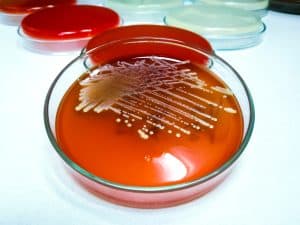
GSK gets $200m from White House
pharmafile | May 23, 2013 | News story | Research and Development, Sales and Marketing | AMR, BARDA, GSK, HHS, white house
GlaxoSmithKline is to be given up to $200 million by the US government to develop new antibiotics as worries grow over the increasing threat of antimicrobial resistance (AMR).
GSK will get the money from the Biomedical Advanced Research and Development Authority (BARDA), part of the US Department of Health and Human Services (HHS).
It is the first time that HHS has taken such a flexible approach with a private company: instead of putting its money into one or two named candidates, the US government will allow cash to be moved around GSK’s antibacterial portfolio.
A joint BARDA-GSK ‘oversight’ committee will monitor progress and decide on the allocation of funds: the parties say this will support the development of several drugs to fight antibiotic resistance and even to counter bioterrorism.
HHS will put up $40 million for the initial 18-month agreement and up to a total of $200 million if the deal is renewed over five years.
Washington’s move will strike a chord in Westminster: the UK government believes the threat of AMR – since there are fewer medicines in pharma’s pipeline to treat a rising number of antibiotic-resistant infections – is potentially ‘catastrophic’.
Many pharma companies have pulled their antibacterial R&D programmes due to a mixture of complex science and low returns, and earlier this week UK health secretary Jeremy Hunt warned the World Health Assembly in Geneva: “There are few public health issues of greater importance.”
He added: “We need stronger international partnerships and coalitions so that the threat of AMR is fully recognised and the responsibility for reducing it is shared.”
GSK’s US public-private deal would seem to fit the bill, with the manufacturer getting significant financial help from state coffers to sustain R&D in this area.
“There is an urgent need to address antibiotic resistance and new models are needed to deal with this challenging area of drug development,” said David Payne, head of GSK’s Antibacterial Discovery Performance Unit.
“We strongly believe that innovative public-private partnerships such as this are integral to solving this critical healthcare issue and we are delighted to work with BARDA in a more strategic way,” Payne concluded.
GSK has worked with BARDA before on research deals for vaccines and antibiotics development: in March, GSK and the Texas A&M System received US government approval to establish an influenza vaccine facility in Texas.
The manufacturer also has links with Europe’s Innovative Medicines Initiative and the Defense Threat Reduction Agency, part of the US Department of Defense.
Adam Hill
Related Content

GSK’s Exdensur receives MHRA approval for asthma and rhinosinusitis
GSK’s Exdensur (depemokimab), a twice-yearly biological medicine, has received approval from the UK Medicines and …

Multiple myeloma treatment approved in Japan
GSK’s Blenrep (belantamab mafodotin) combinations have been approved by Japan’s Ministry of Health, Labour and …

Antibacterial peptides instrumental in efficiency against resistant bacteria
This month, the Chalmers University of Technology in Sweden have published the results of a …






